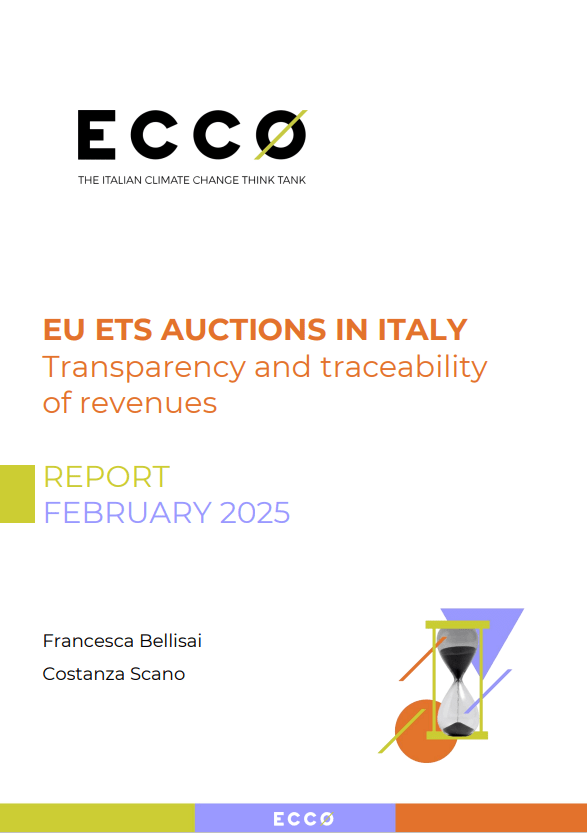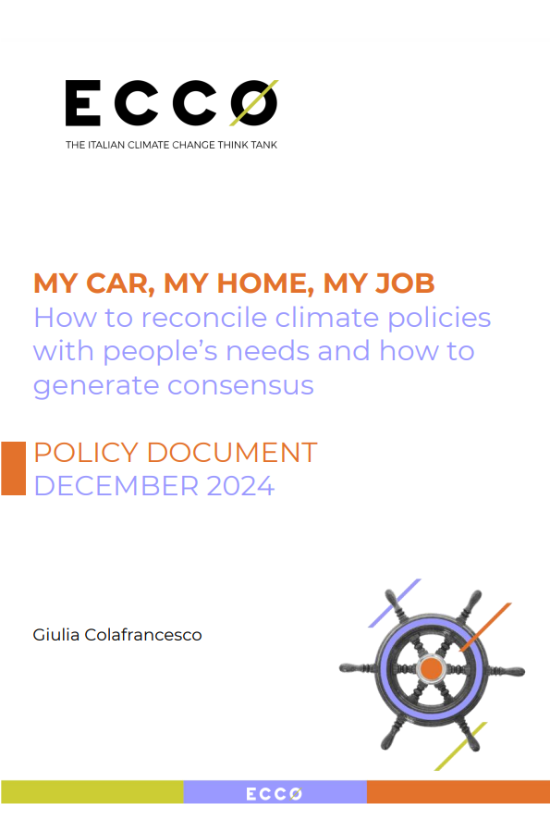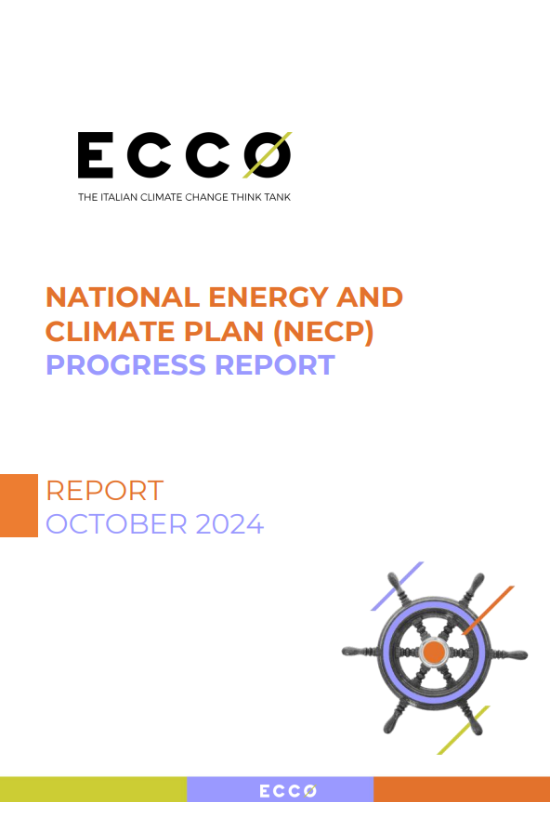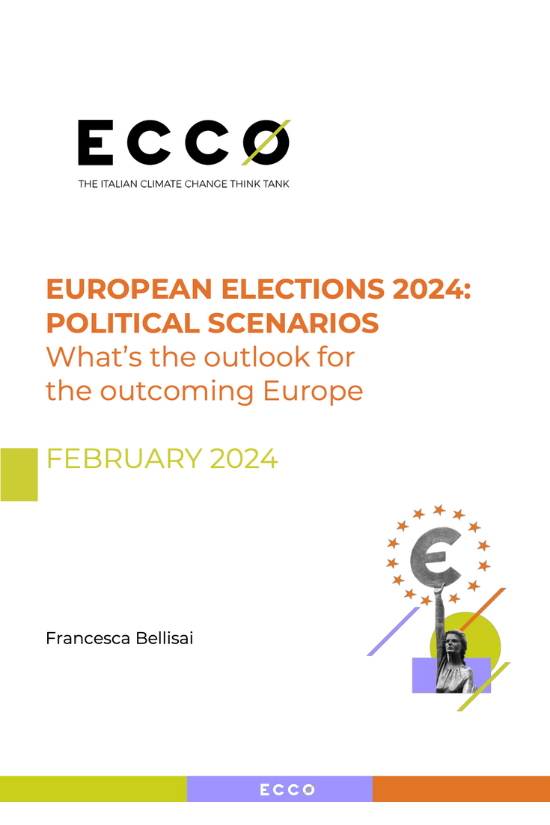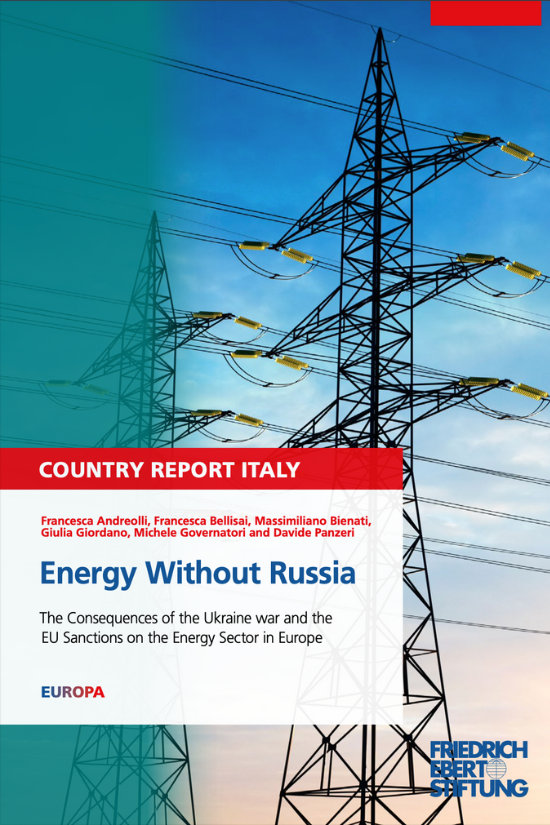Publications
Search
Filters
Authors
/ Alexandra Scott
/ Andrea Ghianda
/ Annalisa Perteghella
/ Beatrice Moro
/ Carolina Bedocchi
/ Caterina Molinari
/ Chiara Di Mambro
/ Chiara Mariotti
/ Chloe Pagliaro
/ Costanza Scano
/ Davide Panzeri
/ ECCO think thank
/ Eleonora Cogo
/ Federico Tassan-Viol
/ Filomena Annunziata
/ Francesca Andreolli
/ Francesca Bellisai
/ Gabriele Cassetti
/ Giovanni D'Amico
/ Giulia Colafrancesco
/ Giulia Giordano
/ Giulia Novati
/ Giulia Signorelli
/ Ilaria Mazzocco
/ Lorena Stella Martini
/ Luca Bergamaschi
/ Luca Iacoboni
/ Mario Noera
/ Marta Lovisolo
/ Massimiliano Bienati
/ Matteo Leonardi
/ Matteo Viola
/ Michele Governatori
/ Nicolas Drago
In this paper, we have assessed how the NRRP is being implemented and its current contribution to the achievement of climate objectives, four years after its adoption. To determine its progress, we have selected and examined a number of climate flagship measures within it, two reforms and four investments relevant to the climate and the energy transition. Based on the findings from our analysis, we have prepared policy recommendations that can inform discussions around the next Multiannual Financial Framework for the 2028-2034 period.
An analysis of the public reports submitted by Italy to the European Commission between 2014 and 2024 highlights issues with the use of revenues generated from EU ETS auctions. Reviewing the revenues from the ETS auctions reveals significant shortcomings in expenditure planning and fund traceability, with only nine percent of the revenues generated by the system have been allocated to measures addressing climate change.
This document is a first contribution to support policy makers in finding the right tools to interpret the needs of our society along the process of transition away from fossil fuels, as well as building a consensus based political proposal and a shared framework of reference based on the principles outlined in this document. Further, it opens a season of social studies aimed at exploring social, economic and cultural drivers of behaviours in relation to climate action.
As a party to the Paris Agreement and as a member of the European Union, Italy’s national contribution is linked with that of other member states and, together, they are legally obliged to achieve a 55% reduction in net emissions, compared to 1990 levels, by 2030. The National Energy and Climate Plan (NECP) provides a national framework for countries to implement their emissions reduction commitments. A Plan that openly falls short of some of the objectives set by the Fit for 55 proposals.
The 2024 European elections will be a key moment for the future of the European Green Deal and the Union's climate policies. The future Commission and the new European Parliament will be able to continue on this path, ensuring that the 2030 targets needed to avert the most disastrous effects of climate change are met. They will also, and most importantly, be able to make the energy transition socioeconomically sustainable.
The Russian invasion of Ukraine and the energy crisis which came in its wake have produced significant impacts on the energy sector in many EU countries, including Italy. This study shows that customers reacted to high gas prices by reducing consumption over and above the European target of 15%, with gas consumption dropping 18.6% from August 2022 to January 2023, in the absence of structural measures.
In this paper, we have assessed how the NRRP is being implemented and its current contribution to the achievement of climate objectives, four years after its adoption. To determine its progress, we have selected and examined a number of climate flagship measures within it, two reforms and four investments relevant to the climate and the energy transition. Based on the findings from our analysis, we have prepared policy recommendations that can inform discussions around the next Multiannual Financial Framework for the 2028-2034 period.
An analysis of the public reports submitted by Italy to the European Commission between 2014 and 2024 highlights issues with the use of revenues generated from EU ETS auctions. Reviewing the revenues from the ETS auctions reveals significant shortcomings in expenditure planning and fund traceability, with only nine percent of the revenues generated by the system have been allocated to measures addressing climate change.
This document is a first contribution to support policy makers in finding the right tools to interpret the needs of our society along the process of transition away from fossil fuels, as well as building a consensus based political proposal and a shared framework of reference based on the principles outlined in this document. Further, it opens a season of social studies aimed at exploring social, economic and cultural drivers of behaviours in relation to climate action.
As a party to the Paris Agreement and as a member of the European Union, Italy’s national contribution is linked with that of other member states and, together, they are legally obliged to achieve a 55% reduction in net emissions, compared to 1990 levels, by 2030. The National Energy and Climate Plan (NECP) provides a national framework for countries to implement their emissions reduction commitments. A Plan that openly falls short of some of the objectives set by the Fit for 55 proposals.
The 2024 European elections will be a key moment for the future of the European Green Deal and the Union's climate policies. The future Commission and the new European Parliament will be able to continue on this path, ensuring that the 2030 targets needed to avert the most disastrous effects of climate change are met. They will also, and most importantly, be able to make the energy transition socioeconomically sustainable.
The Russian invasion of Ukraine and the energy crisis which came in its wake have produced significant impacts on the energy sector in many EU countries, including Italy. This study shows that customers reacted to high gas prices by reducing consumption over and above the European target of 15%, with gas consumption dropping 18.6% from August 2022 to January 2023, in the absence of structural measures.

